Dr. Mardy's Quotes of the Week ("Seven More Tips on Effective Aging")
February 2-8, 2025 | THIS WEEK'S THEME: “Seven More Tips on Effective Aging"
Opening Line of the Week
I love an opening line that—even though brief—contains an unexpected twist at the end.
While a great memory at age 100 would be regarded by most people as a wonderful gift, Puzo cleverly reminds us that this does not apply to people who’ve done many things in life they’d prefer to forget.
For well over 2,000 memorable opening lines from every genre of world literature, go to www.GreatOpeningLines.com.
This Week’s Puzzler
On December 31, 1946, this woman was born in Brussels, Belgium (she celebrated her 78th birthday last month). Born to Jewish parents, her mother was a Holocaust survivor who was liberated 18 months before giving birth to her. Her mom was only 44 pounds when she was rescued, and was still extremely frail when, a mere nine months later, she became pregnant. Doctors strongly advised her not to continue the pregnancy, warning that, even if she survived, the baby’s health would be severely jeopardized.
The baby not only survived, she went on to become a healthy child and a vibrant—and smart—teenage girl. After graduating from an English boarding school in 1964, she attended Madrid University before transferring to the University of Geneva in Switzerland. It was there that she met her first husband, Prince Egon, a socialite, banker, and member of a royal German family with a famous name.
Shortly after their 1969 marriage, they settled in Paris, where she began working as an apprentice to well-known figures in the fashion industry. After the couple separated in 1973, she moved to New York and launched her fashion brand. The new venture was given a major boost when Vogue magazine editor Diana Vreeland hailed her designs as “absolutely smashing.”
In 1974, she introduced her signature “wrap dress,” a modern version of a design that goes back to antiquity (for more, go here). The dress quickly became a cultural phenomenon and now has an exalted place in fashion history. In the short space of two years, she’d become a household name, and a 1976 cover story in Newsweek magazine described her as “the most marketable woman since Coco Chanel.”
It’s been four decades since her wrap dress was introduced, and this week’s Mystery Woman is now regarded as a legend in the fashion industry. She’s also shown great flair in the way she uses language:
Who is this person? (Answer below)
This Week: “Seven More Tips on Aging”
Last week, I took a popular quotation from the legendary American writer Edith Wharton and turned it into a post on “Four Tips for Effective Aging.” This week, I’m following up with seven more tips on the subject. All in all, this adds up to “Eleven Tips for Effective Aging,” Like last week, I’ll pair each tip with a quotation or two.
(1) Don’t Live in the Past
Whether reminiscing over the “glory days” of youth or dwelling on past regrets or blunders, the chief problem of living in the past is that it traps people in a world that no longer exists. Life only moves in a forward direction, and clinging to what was—whether good or bad—suggests a life not of growth, but stagnation. May Sarton expressed it well in her 1984 memoir At Seventy, when she wrote: “I suppose real old age begins when one looks backward rather than forward.”
(2) Keep Moving
There is probably no modern catchphrase more true than “Move it or lose it.” The human body is designed for movement, and staying physically active—whether through walking, stretching, physical exercise, and strength training—is a key to physical as well as mental and emotional health.
A sedentary life, by contrast, poses a significant health risk. Physical inactivity weakens muscles, stiffens joints, and accelerates cognitive decline. It also increases the risk of heart disease, diabetes, osteoporosis, and even depression. In We Live Too Short and Die Too Long (1991), aging specialist Dr. Walter Bortz coined the term “Sedentary Death Syndrome” to describe the myriad health issues arising from a lifestyle without sufficient activity.
(3) Cancel the Organ Recitals
In The Ann Landers Encyclopedia (1978), the legendary advice columnist made an important contribution to the subject of aging when she coined the term “organ recitals” to describe conversations among older people that focus disproportionately on bodily complaints, physical ailments, and medical issues. While you may be unable to completely cancel your recitals, with a little effort you should be able to dramatically reduce their number.
(4) Relentlessly Pursue a Passion
Having a passion is like finding a perfectly compatible companion you want to have with you for the rest of your life—and for older people, it’s something of an elixir. When I see people in their eighties pursuing a passion, they bear a closer resemblance to a child at play than to a typical octogenarian.
It’s delightful to see people of any age animated by a passion, but it feels something close to divine when we see it in people who are in their so-called declining years. In a 2023 Substack post, I put it this way: “Finding a passion is not an antidote to aging, but it’s the nearest thing to it that human beings have found so far.”
(5) Be Kinder
Kindness is an attempt to help someone who’s experiencing some trouble or difficulty in their journey through life. When we lend a helping hand, we’re not simply easing someone else’s burden, we’re also doing one of the best things we can do for ourselves. For centuries, great thinkers have reminded us that happiness is not something to be pursued directly, but rather, something that comes as a by-product of doing something else. And two of the most important things are pursuing a passion—which we discussed above—and being kinder to the people in your world.
If you commit to doing one kind thing tomorrow—and one more thing every day after that—there are literally thousands of things at your disposal. If you need your thinking stimulated, take a look at my 2023 Substack post on “Kindness.” Or check out this helpful list of “100 Ways to Be Kinder.”
(6) Don’t Leave a Mess for Your Loved Ones
This tip is generally filed under the rubric of getting your affairs in order, and I’m hoping you’ve already done the three most important things: (a) completing a will and an estate plan, (b) filing an Advance Healthcare Directive, also known as a living will, and (c) clearly specifying your funerary preferences (e.g, burial or cremation, memorial service or not). If you haven’t done these essential things, you don’t even want to think about what your loved ones will be saying about you after your death.
There’s also a critical fourth thing you need to do—and that is to make sure you don’t leave a literal mess after your death. In my case, for example, my office, closets, garage, and “man cave” currently contain a small mountain of personal possessions. To be honest, 90% of those items deserve to be called junk, not possessions, and right now they’re doing little more than accumulating dust. If I do nothing, my personal possessions will ultimately become a huge problem for someone I routinely say I love with all my heart. If you’re also willing to commit to a major de-cluttering in your life, know that we’ll be working in tandem with each other over the next six months.
(7) Re-Think Your Relationship with Alcohol
I’m just coming off my second consecutive “Dry January,” so it’s clear that the subject of alcohol consumption has been on my mind lately. But after the U.S. Surgeon General’s recent warning about the dangers of alcohol consumption, I decided to do a bit more research. My conclusion? Contrary to what I’ve long believed, there is an emerging scientific consensus that there are no health benefits to drinking.
I haven’t yet made a final decision on this matter, but if I do continue to drink going forward, it will almost certainly be at a markedly reduced level. Perhaps a single glass of wine if we’re having dinner with friends. And maybe the ritual vodka martini I’ve imbibed almost every Saturday night for over twenty years after posting my weekly newsletter. But one thing I know for sure: my days of having a drink or two each day are over.
This week, continue to give some thought to how effectively you’re aging. And, once again, consider getting some feedback from a spouse, other family member, or dear friend. Also let your thinking be stimulated by this week’s selection of quotations on the subject:
To know how to grow old is the masterwork of wisdom, and one of the most difficult chapters in the great art of living. — Henri-Frédéric Amiel
The minute a man ceases to grow—no matter what his years—that minute he begins to be old. — Bruce Barton
The stereotype of aging as a progressive loss of function is generally true only for people who stop functioning. — Joan Borysenko
Of all the self-fulfilling prophecies in our culture, the assumption that aging means decline and poor health is probably the deadliest. — Marilyn Ferguson
The older we become, the more our true natures emerge. Thus the final years have a very important purpose: the fulfillment and confirmation of one’s character. — James Hillman
Death is the monster we all fear, yet with each day, we walk toward it, and can’t help doing so; we can’t help but walk toward the one thing we’re most trying to avoid. — Bill Maher
I used to think that getting old was about vanity—but actually it’s about losing people you love. — Joyce Carol Oates
There are people whose watch stops at a certain hour and who remain permanently at that age. — Charles-Augustin Sainte-Beuve
Everybody has got to die, but I have always believed an exception would be made in my case. — William Saroyan
It’s true, some wine improves with age. But only if the grapes were good in the first place. — Abigail Van Buren
For source information on these quotations, and more observations on the theme of AGE & AGING, go here. For quotations specifically on the topic of OLD AGE, go here.
Cartoon of the Week:
Answer to This Week’s Puzzler
Diane von Fürstenberg
Dr. Mardy’s Observation of the Week
Thanks for joining me again this week. See you next Sunday morning, when the theme will be “Self-Deception.”
Mardy Grothe
My Two Websites: www.drmardy.com and www.GreatOpeningLines.com
Regarding My Lifelong Love of Quotations: A Personal Note



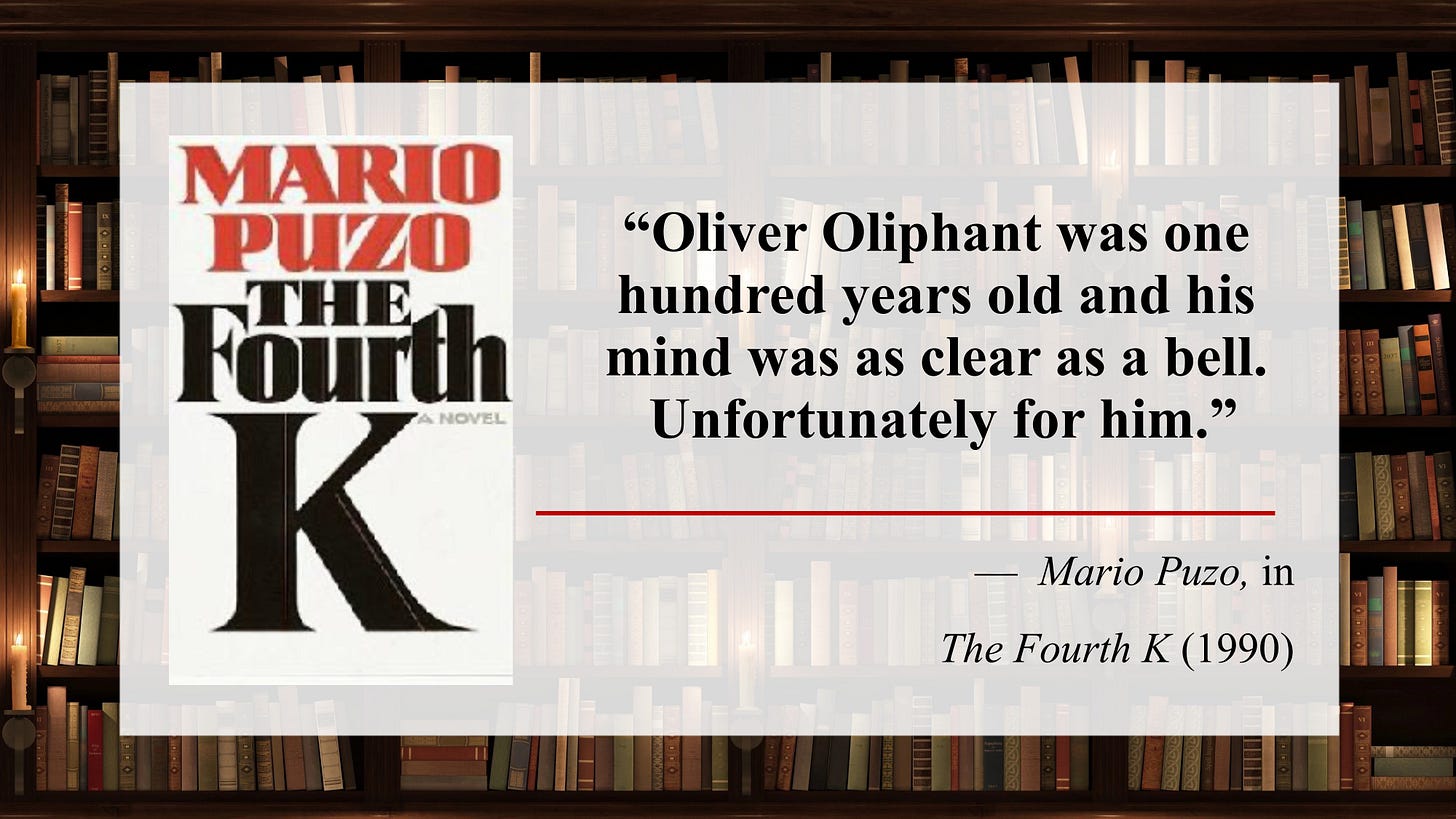


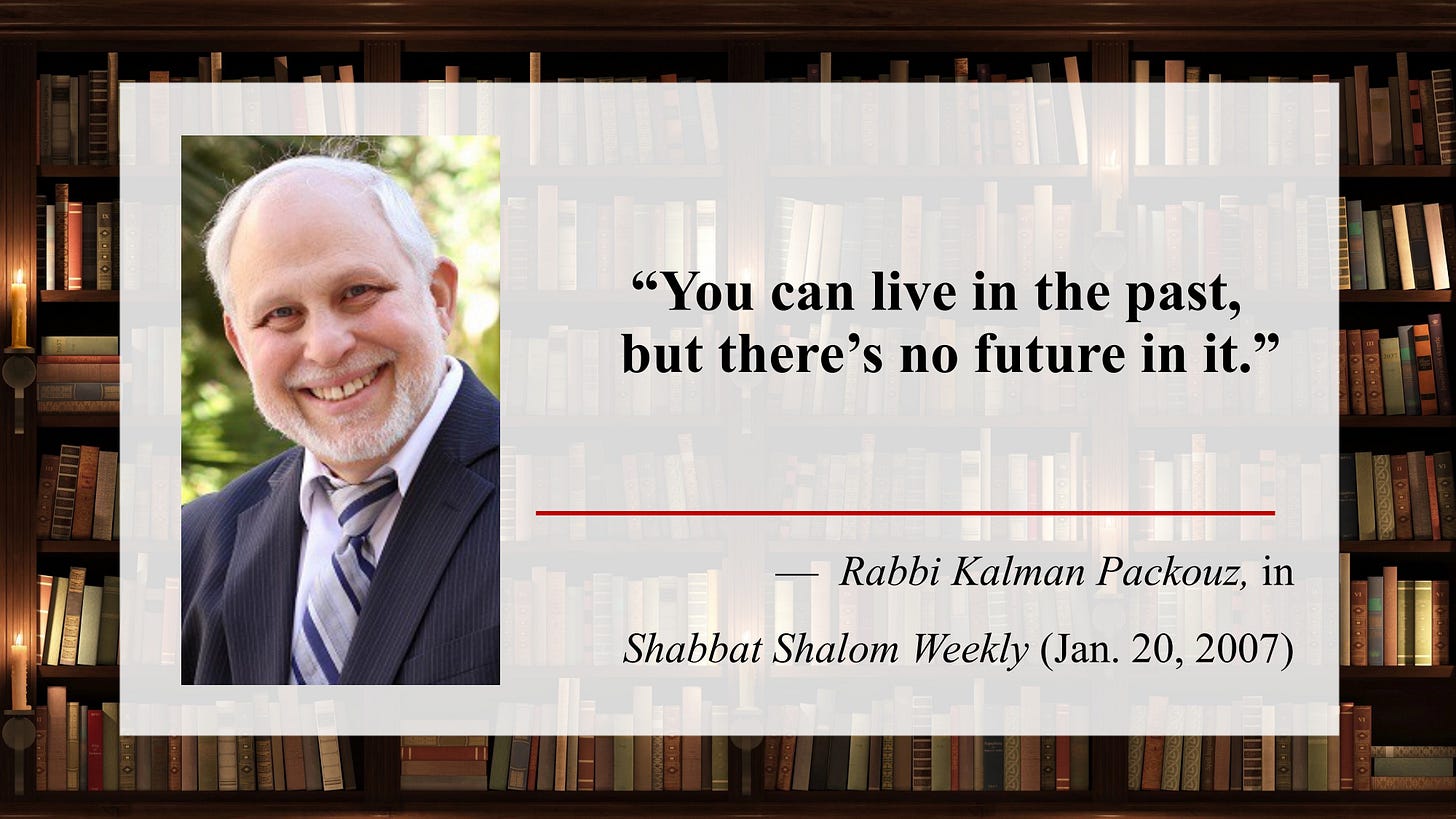
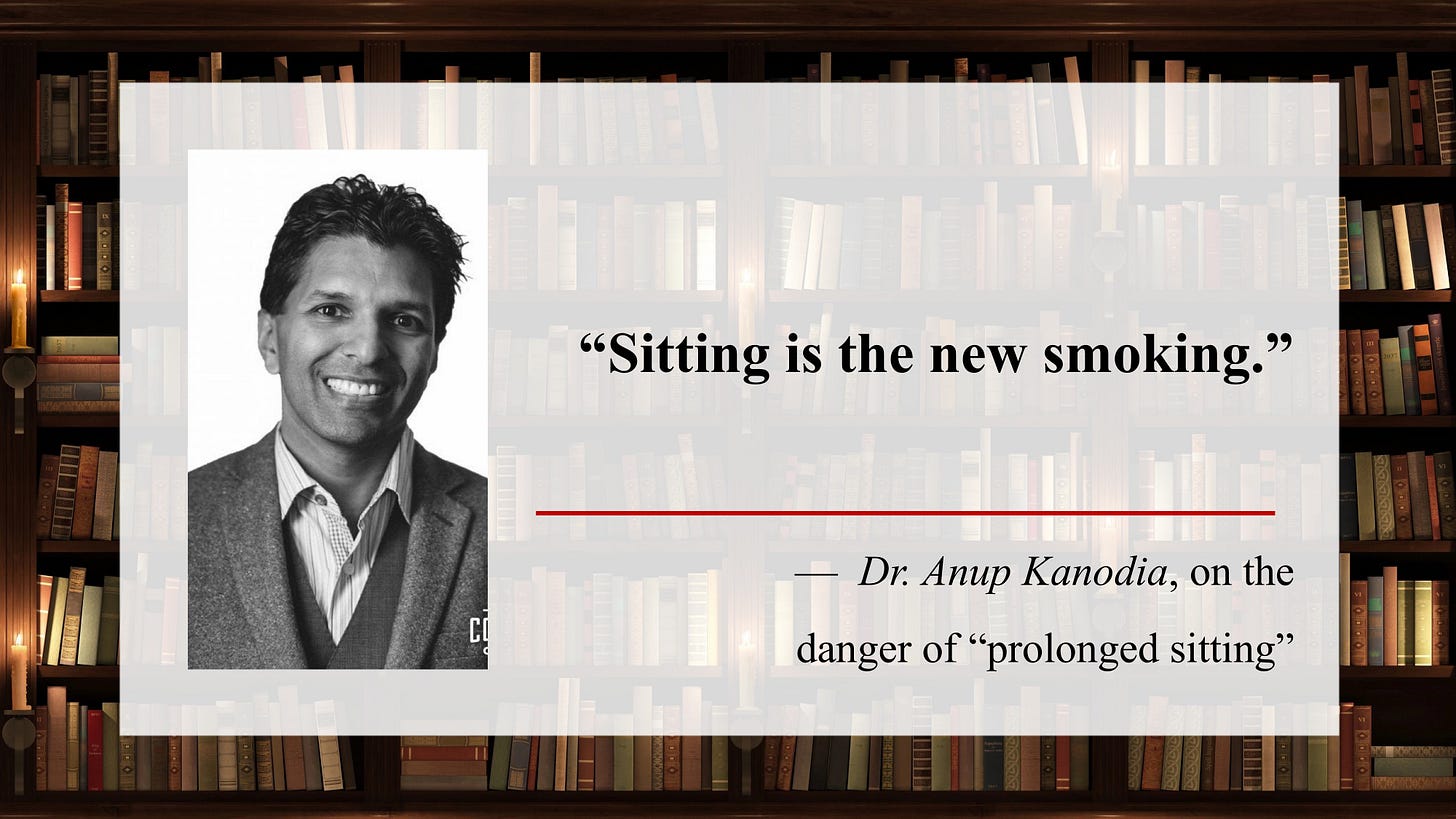
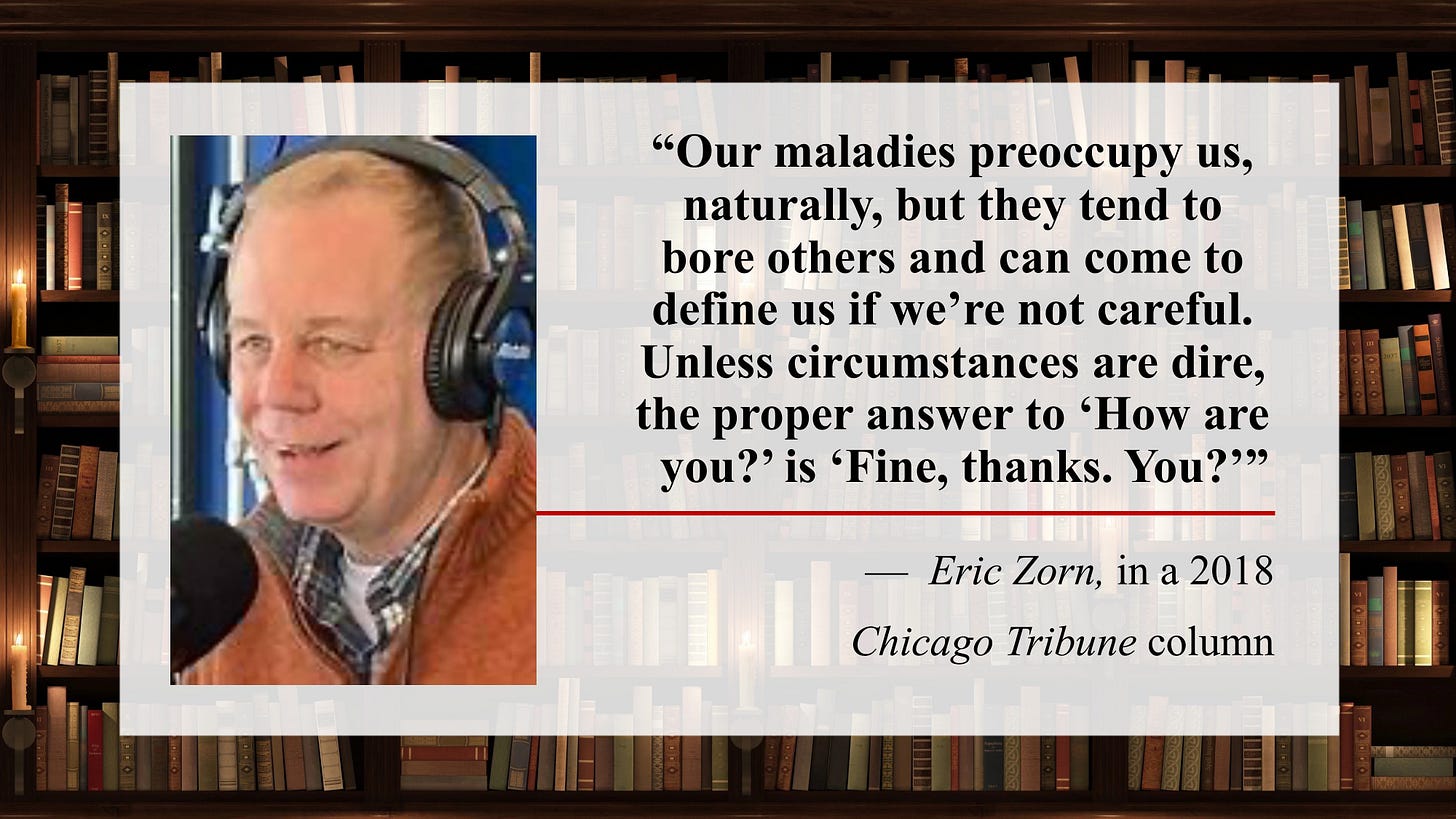
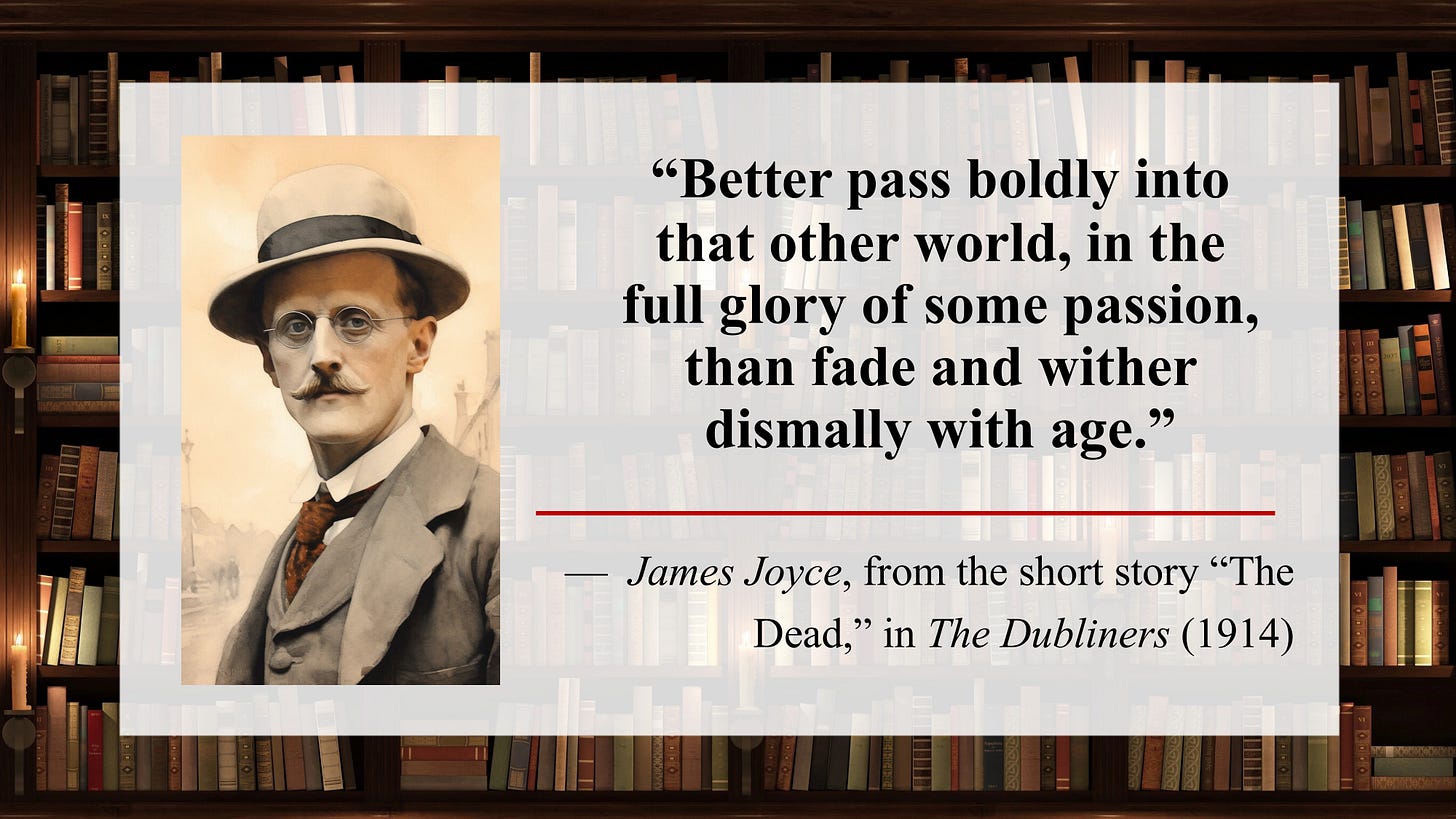
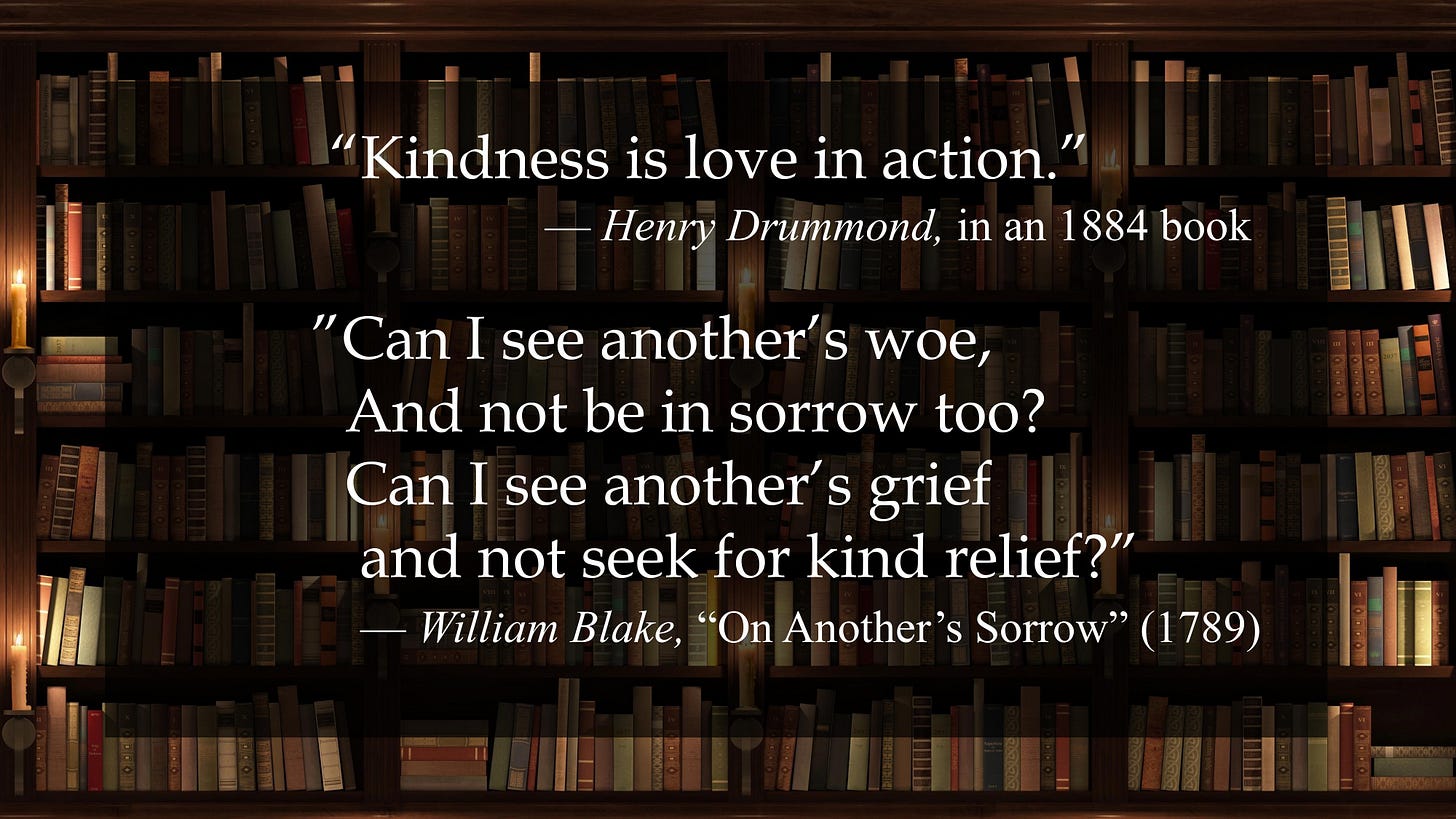
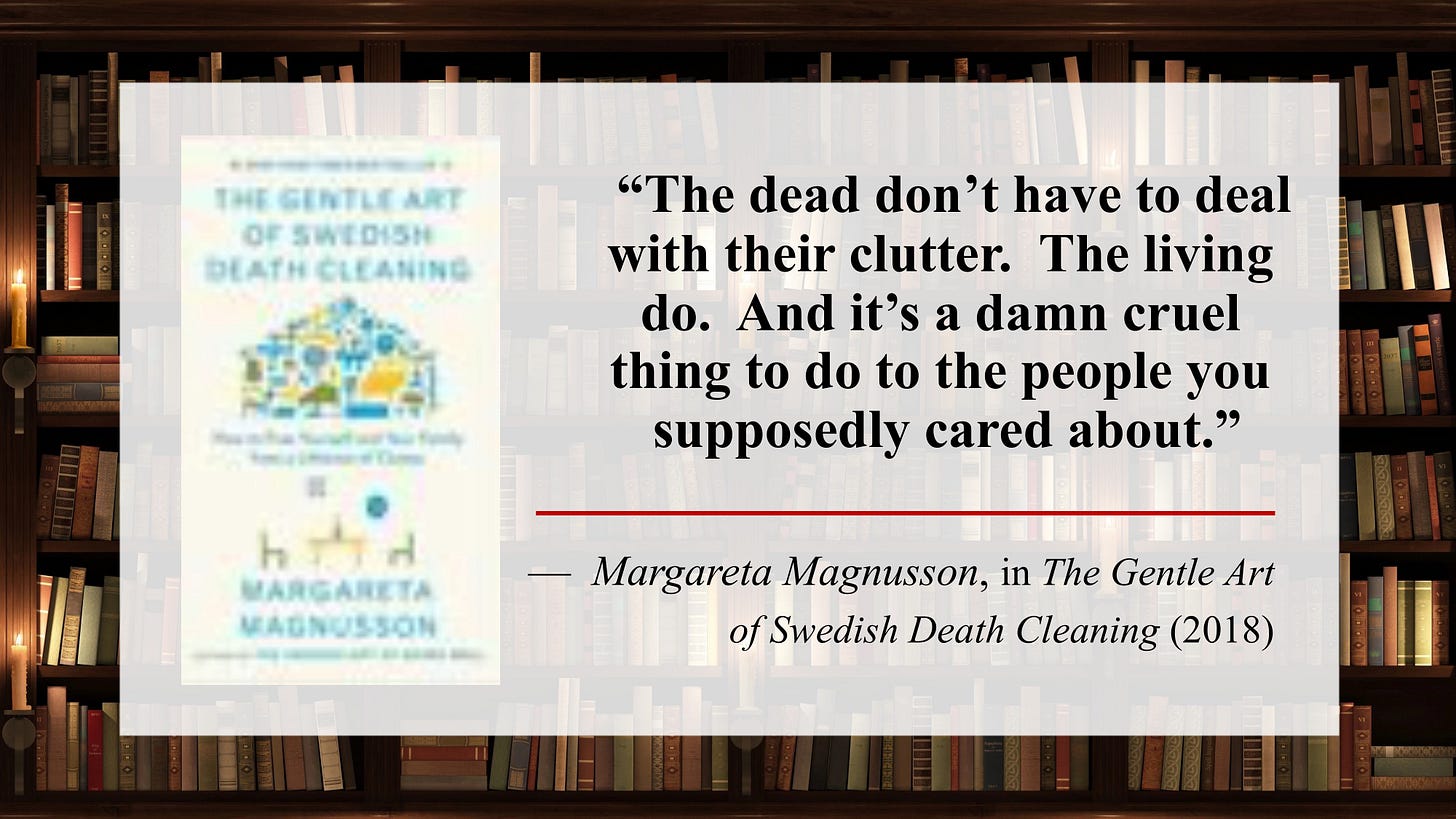

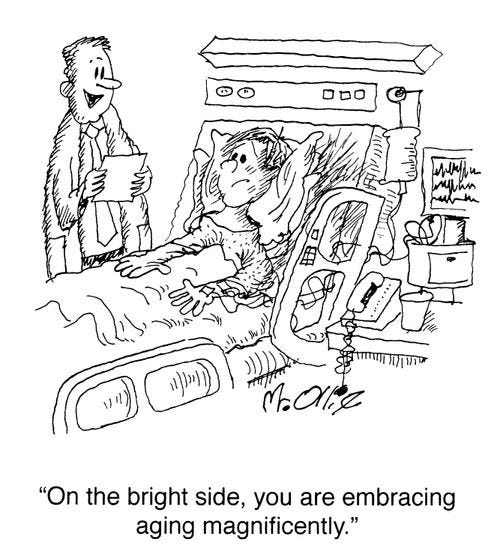
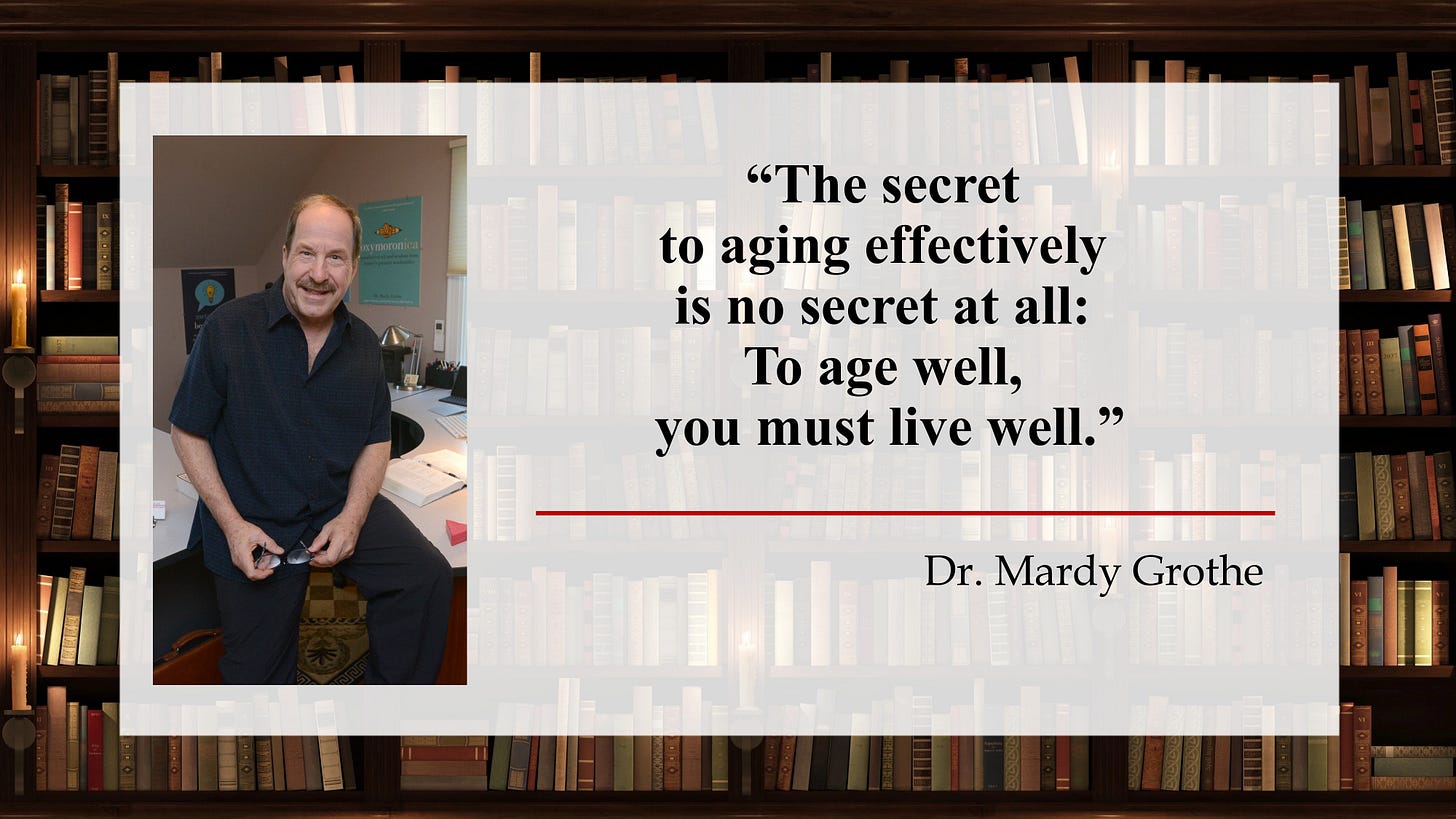
Mardy, Thanks for your additional wise words on aging. Some of the wisest words come from older persons. Two examples. Lady Nancy Astor at age 80 said, "I used to dread getting older because I thought I would not be able to do all the things I wanted to do. But now that I am older, I find that I don't want to do them." Symphony conductor Pierre Monteux on his 89th birthday said, "I still have two abiding passions. One is my model railway, the other---women. But, at the age of of 89, I find I am getting just a little too old for model railways."
You inspire me every week. Thank you. I’m a 79 year attorney retired from active practice. I work part-time maintaining local public parks. I empty trash, check for hazards and inspect the facilities to make sure everything is functioning. I get to talk to parents about their children, to children about their joys and to dog owners about their pets.
I drive an old battered pickup truck I’ve named Rosinante. A rack is my lance and a trash picker my sword. I love it.